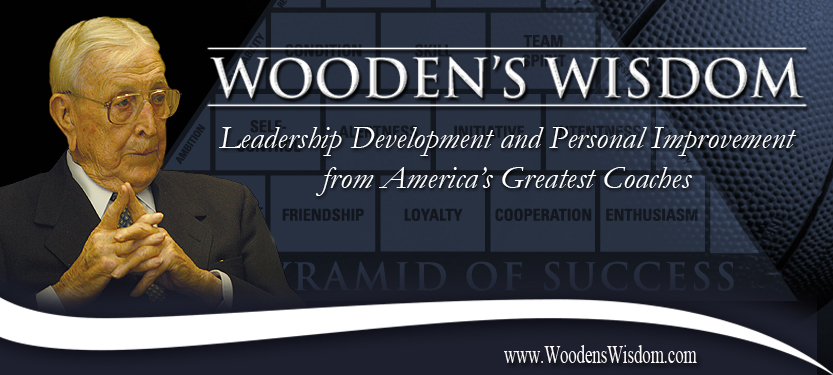 |
|
| Wooden's Wisdom - Volume 13 | Issue 724 |
| Craig Impelman Speaking | Championship Coaches | Champion's Leadership Library Login | |
|
"JOHN WOODEN, JEFF BEZOS AND BERRY GORDY: COLLABORATION AT ITS BEST" We’ve studied how Coach Wooden ran practices, and how Jeff Bezos built Prime. There’s another world-class operation worth putting under the same microscope: Motown—Berry Gordy’s "Hitsville U.S.A."
Why Motown? Because the results were staggering. Between 1961 and 1971 Motown racked up 110 Top 10 hits, an industrial output of creativity that almost defies belief. Across Gordy’s ownership era (1959–1988), Motown tallied roughly 53 U.S. Billboard Hot 100 #1 singles, with artists like the Supremes, the Miracles, the Four Tops, the Jackson 5, Stevie Wonder, and Marvin Gaye carrying the sound of young America to the top of the charts.
Coach Wooden, Jeff Bezos, and Barry Gordy shared a common operating system. They each built structures that required dissent, made debate normal, and removed personal blame from honest disagreement. In our framework, that’s Level Seven Collaboration.
Inside Motown’s Quality Control MeetingsBerry Gordy adapted an idea from his time on Ford’s assembly line and reinvented it for art: every Friday at 9 a.m., Motown held their Quality Control Meeting—a standing, high-stakes session where producers, writers, promotion, and even non-creative staff crowded in to argue and decide which records should be released. People fought for their songs, poked holes in others, and—crucially—voted.
Gordy had one cultural non-negotiable: "freedom to express honest opinions…without fear of reprisal." He was serious—if he smelled payback for a vote, the "reprisalor" was in trouble.
There was structured dissent with no recrimination. People could disagree openly because the system guaranteed fair rules and protection for candor. Motown didn’t "hope" collaboration would happen; it scheduled it, refereed it, and protected it.
Quality Control wasn’t just a meeting—it was a repeatable mechanism that:
All three men used the same leadership math: structure + candor + non-recrimination = repeatable excellence.
The Coach Wooden, Jeff Bezos. Berry Gordy lessons for any team—sports, tech, healthcare, and education are:
That’s how a factory of hits stays a factory of hits. And that’s how Level Seven collaboration moves from a feel-good notion to an operating advantage.
What’s your operating advantage?
Yours in Coaching, Craig Impelman
|
Success This I would claim for my success—not fame nor gold, Edgar Albert Guest (1881-1959)
|
|
For more information visit www.woodenswisdom.com |
|
© Copyright 2026 WoodensWisdom.com | # of Times Wooden's Wisdom Issues Opened: 7,823,254
Hosting & Design by:EverydayWebDesign.com